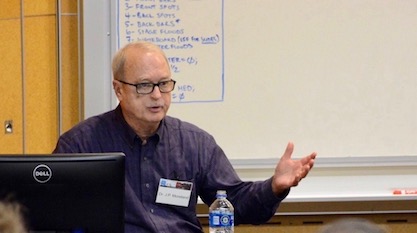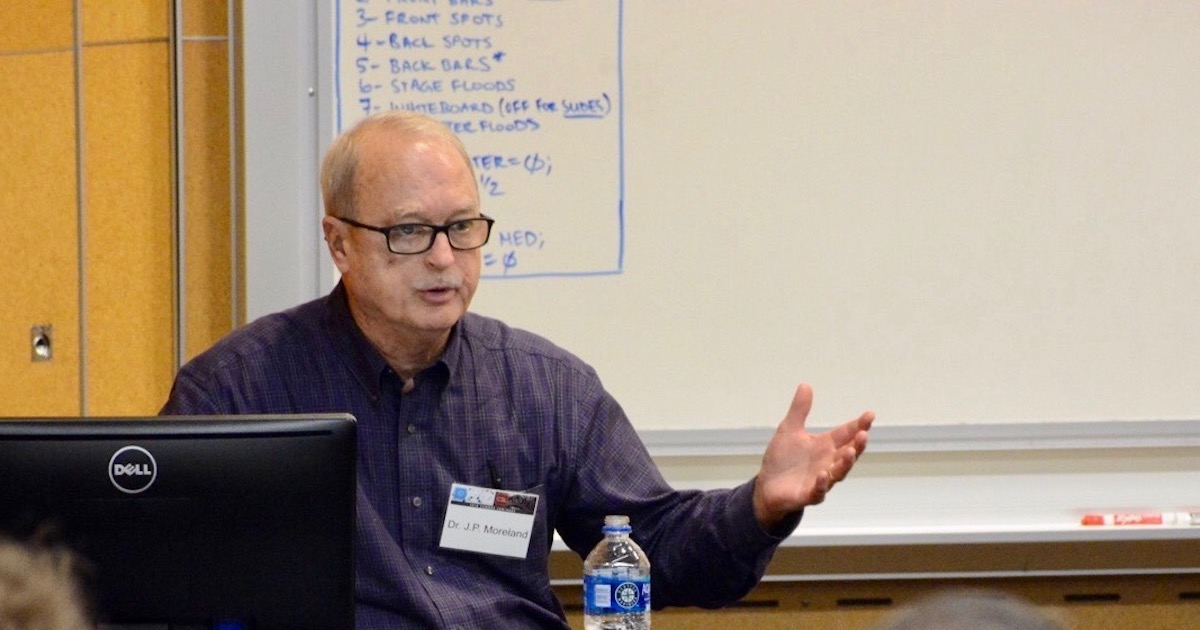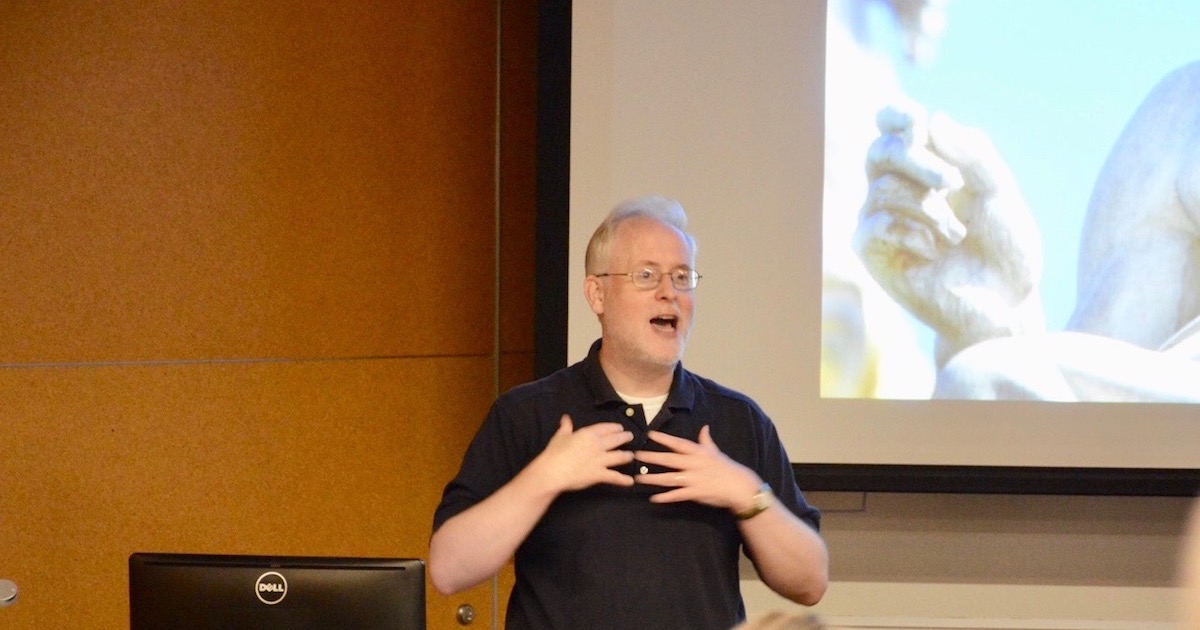 Education
Education
 Intelligent Design
Intelligent Design
Summer Seminars on Intelligent Design Expand Students’ Intellectual Horizons


As Ann Gauger has already noted, Discovery Institute recently hosted this year’s Summer Seminars on Intelligent Design, here in Seattle. Students, scholars, and professionals from around the world came to learn about the evidence for design in nature. Those in the C.S. Lewis Fellows track also learned about the social implications of Darwinian versus design theory.
Student responses were striking. Many expressed shock and dismay at the extent to which the state of science and the strength of the arguments for intelligent design (ID) have been misrepresented to the public. Others were excited by the number of ID scientists conducting research at the forefront of biology. Many were simply relieved to speak about their beliefs in an environment where they were allowed to think critically about science and venture beyond the confines of materialist philosophical commitments.
The science talks described how advances in many fields of physics and biology point to an intelligent designer. They explained how the biological data continuously undermine the standard evolutionary model. The lectures were presented by leaders in the ID research community. For instance, Michael Behe talked about how genetic studies on numerous species from bacteria to finches demonstrate that beneficial mutations nearly always degrade the function of genes. In other words, information is typically lost, not gained. The claim that random mutations and related process could add vast amounts of information to genomes completely contradicts both experimental and observational studies.
Abrupt Appearances
Paleontologist Günter Bechly discussed how the pattern of the fossil record consistently displays abrupt appearances of radically new organisms. And, theoretical biologist Rick Sternberg further illuminated the severity of the problem by describing the results of mathematical models on the time required for new coordinated mutations to accumulate in species of smaller population sizes such as whales. In such cases, the largest possible number of coordinated mutations that could accumulate is two. However, any new adaptation would require vastly more highly specified mutations before selection could possibly assist.

Sternberg also described how mathematicians have recognized for decades that many of evolutionists’ key claims are mathematically implausible. For instance, theoretical biologists determined that applying the mathematics of topology to large-scale transitions demonstrates the impossibility of their occurring without either invoking implausible pathways or intelligent direction. For instance, Günter Wagner and Peter Stadler derived the conclusion that the evolution of a new body plan requires one of two possibilities:
- The transitional forms must have all of the traits of the initial and final species (e.g., a hyena-whale monstrosity), and the evolutionary process simply involves the shedding of some of the initial traits; or
- The process involves a radical transformation in a single instance — the appearance of a “hopeful monster.”
Neither possibility is conceivable without the assistance of intelligent direction. Many other mathematical analyses have demonstrated equally daunting challenges. A primary reason why many biologists never question the standard evolutionary model is their very limited training in mathematics.
Darwin’s Corrosive Idea
A session of particular interest addressed the corrosive influence Darwinian thinking has had on society, including religion. For instance, in his book Finding Darwin’s God, Darwinian apologist Ken Miller proposed a model for reconciling religious belief with evolution. He supported the view
that mankind’s appearance on this planet was not preordained, that we are here not as the products of an inevitable procession of evolutionary success, but as an afterthought, a minor detail, a happenstance in a history that might just as well have left us out.
Miller is pressuring traditional theists, particularly Christians, to embrace views that completely undermine the very foundation of their faith.
At the end of the seminars, the students were excited to return home and think through how to apply the insights they learned to their professional careers. They also recognized that the current social climate in academic settings poses great risks for anyone who blasphemes against the materialist creation narrative. However, they are hopeful that they can help free people’s minds from the intellectual oppression of materialist philosophy prevalent throughout society.
Photos: J.P. Moreland, John West lecturing at the 2018 Summer Seminars on Intelligent Design, by Daniel Reeves.
